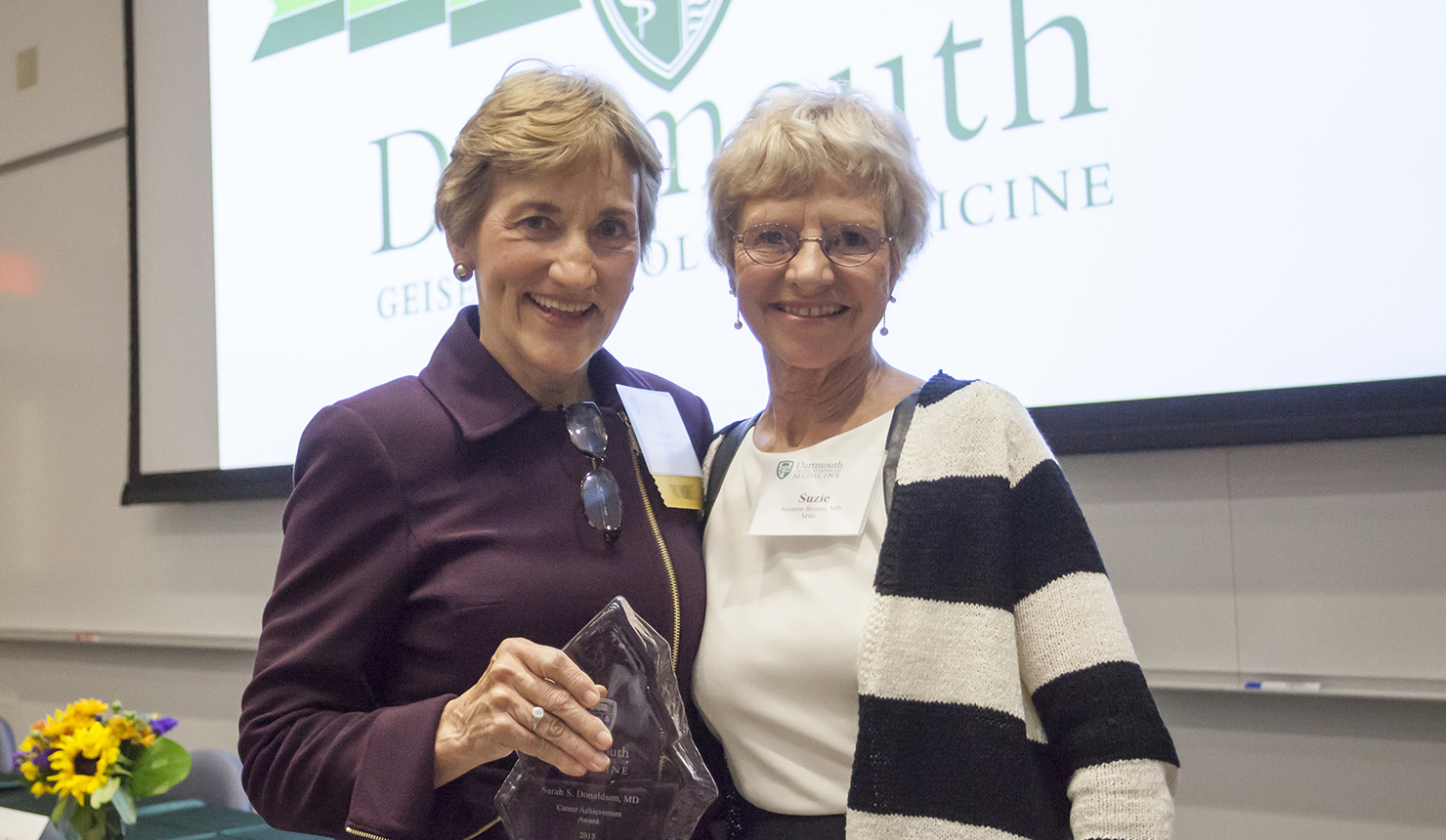Read article – Quotes H. Gilbert Welch, professor of medicine, community and family medicine, and of the Dartmouth Institute for Health Policy and Clinical Practice, from his book Less Medicine, More Health, about how biometric data collection can lead “people to feel more vulnerable, to be terrorized by false alarms, and to be overdiagnosed and overtreated.”
Articles by: Geisel Communications
Paul Manganiello: Are We Failing Our Children in Sex Education? – VT Digger
Read article – An opinion piece by Paul Manganiello, active emeritus professor of obstetrics and gynecology, where he discusses how we should be educating children about healthy sexual behavior. “If we keep trying to address the topic, by not really addressing it, we will continue to wind up with the same results, poorly informed individuals with unhealthy sexual attitudes and behaviors,” says Manganiello.
We Visited Mock Mars: Here’s What It’s Like to Live There – Space.com
Read story – Quotes former NASA astronaut Jay Buckey, professor of medicine and adjunct professor of engineering, who ran an experiment during the Hawaii Space Exploration Analog and Simulation (HI-SEAS) mission—a NASA-funded mission to study how humans would cope with living on the surface of Mars or another off-Earth location—that provided crew members with tools to maintain their behavioral health. The tools included training in topics such as conflict management and depression treatment.
When a Medical Test Leads to Another, and Another – The Wall Street Journal
Read article – Gilbert Welch, professor of medicine, community and family medicine, and of the Dartmouth Institute for Health Policy and Clinical Practice, is quote about a new report that explores the topic of incidental findings—abnormalities that are picked up by happenstance in the course of unrelated imaging tests—and argues that there has been too much overtreatment of some minor medical issues and there is a risk of patient harm. Welch states that radiologists “feel trapped legally” by the fear of malpractice suits. “They are only punished for under-diagnosing, not over-diagnosing, so they throw it back to the clinician,” says Welch, who was not involved in the research.
Dartmouth Institute-Led Team Developing Universal Toolkit to Predict Hospital Readmission Risk – Scienmag
Read article – Quotes Jeremiah Brown, associate professor of the Dartmouth Institute for Health Policy and Clinical Practice, about a four-year project he is leading to develop a universal toolkit that could be implementable in any electronic medical records system and used to predict the risk of hospital readmission in real-time. “The focus of this project is to help hospitals improve continuity of care in directing and allocating resources to patients who face the highest risk of readmission,” says Brown.
Study Shows High Engagement With Digital Therapy for Schizophrenia Spectrum Disorders – Mobi Health News
Read article – Quotes Dror Ben-Zeev, assistant professor of psychiatry, about a study he led that shows promising engagement with Pear Therapeutics’ program Thrive, which uses a smartphone app along with medication to treat patients with schizophrenia, schizoaffective disorder and bipolar disorder.
Suzanne Boulter MED’66: Healthy Pursuits
Ask Suzanne Boulter MED’66 what she has been doing since she retired from clinical practice in 2010, and you won’t hear about a life of leisure. She is currently working on a nationwide American Academy of Pediatrics program called “Brush, Book, and Bed.”
Is N.H.’s Medical Marijuana Program Too Narrow? – NHPR
Read article – As a guest on NHPR’s “The Exchange,” Gilbert Fanciullo, professor of anesthesiology, discusses New Hampshire’s therapeutic cannabis program and the debate over who should access the drugs.
TV Rating System Not Accurate, Little Help to Parents – CNN
Read article – Quotes Joy Gabrielli, a clinical child psychologist and postdoctoral research fellow, who was the lead author of a recent study which revealed that violence is prevalent across shows, regardless of rating. “The TV Parental Guidance rating system may not be effective as a standalone tool for parents who hope to limit their children’s exposure to these risk behaviors,” says Gabrielli.
After a Fracture, Patients Often Continue Meds That Boost Fracture Risk – Fox News via Reuters
Read article – Quotes Jeffrey Munson, assistant professor of medicine and of the Dartmouth Institute for Health Policy and Clinical Practice, who was the lead author of a recent study that found older people who break a bone are often receiving medications that can increase the risk of a fracture – and even after an accident, less than 10 percent of them stop taking those drugs. (Additional coverage in UPI.)
